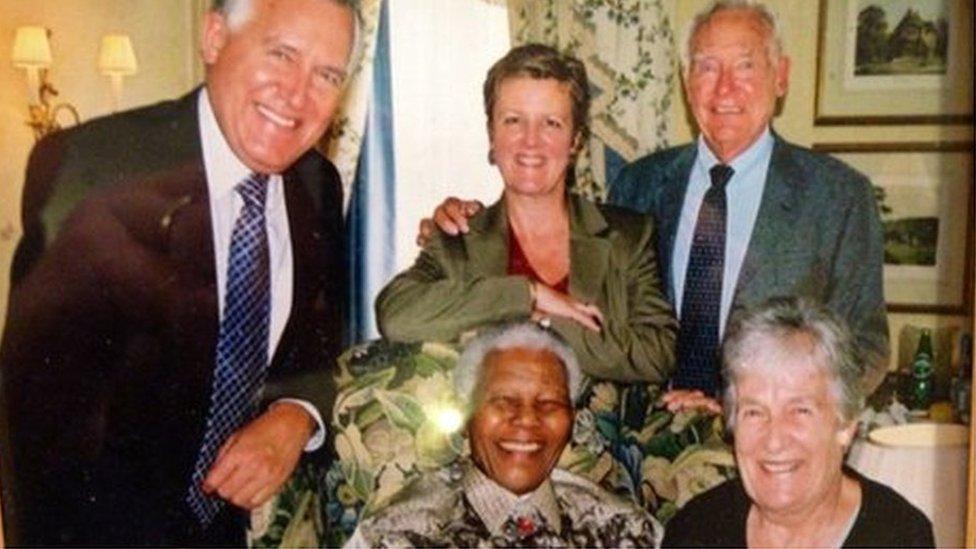Lord Hain's mother, anti-apartheid activist Adelaine, dies
- Published
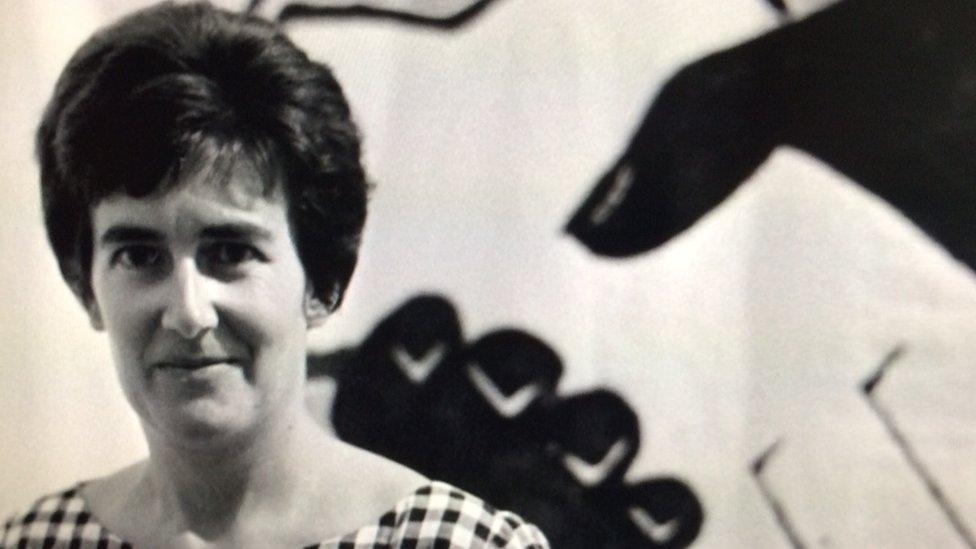
Adelaine Hain signed passbooks, smuggled messages and helped a political prisoner escape apartheid South Africa
The mother of Lord Hain, who was jailed for her anti-apartheid campaigning in the 1960s, has died at the age of 92.
Adelaine Hain and her husband Walter were persecuted by the South African government for their activism, forcing them into exile in Britain.
A supporter of Nelson Mandela, she continued protesting in the UK. She moved in 2009 to Neath, when her ex-Labour minister son was the local MP.
Lord Hain said his mother showed "enormous courage and self-sacrifice".
Born Adelaine Florence Stocks in Port Alfred, South Africa, in February 1927, she married Walter Hain in Pretoria in 1948.
Walter and Adelaine Hain were banned and jailed for fighting apartheid in South Africa
The couple, who had four children, joined the South African Liberal Party in 1954. Within four years, Adelaine was the Pretoria branch secretary, while Walter was its chairman.
Lord Hain said his mother was the "leading activist of the two in between caring for her four children" while Walter was at work as an architect.
"A diminutive figure, barely five feet tall, she charged about Pretoria, the capital city and citadel of apartheid, fighting for civil rights," he said.
In black townships she signed scores of passbooks - used to restrict where black South Africans could work and travel - to keep their owners from being arrested, something it was illegal for her to do as a non-employer.
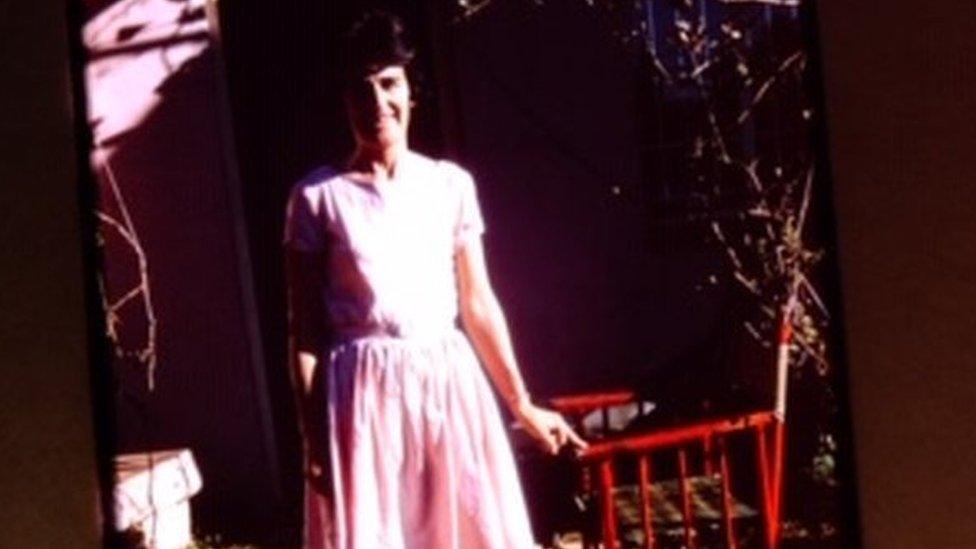
Adelaine Hain left South Africa in the mid-1960s after being jailed and banned from speaking to other activists
For their activism the couple were jailed for two weeks in 1961, without charge. They were released because Mrs Hain had destroyed the incriminating evidence - chewing and spitting out a draft leaflet supporting the defence of African National Congress leader Nelson Mandela.
She first met Mandela in 1958, and in 1962 was asked by an anti-apartheid newspaper to report on his trial. Each morning the defendant, on arriving to court, would salute her with a clenched first, a gesture she would return with her her first raised.
The next year Mrs Hain was presented with a banning order. Designed to stop her political activism, the measure made it illegal for her to communicate with any other banned person.
Her husband was banned a year later, although the pair were given special clauses allowing them to communicate with each other.
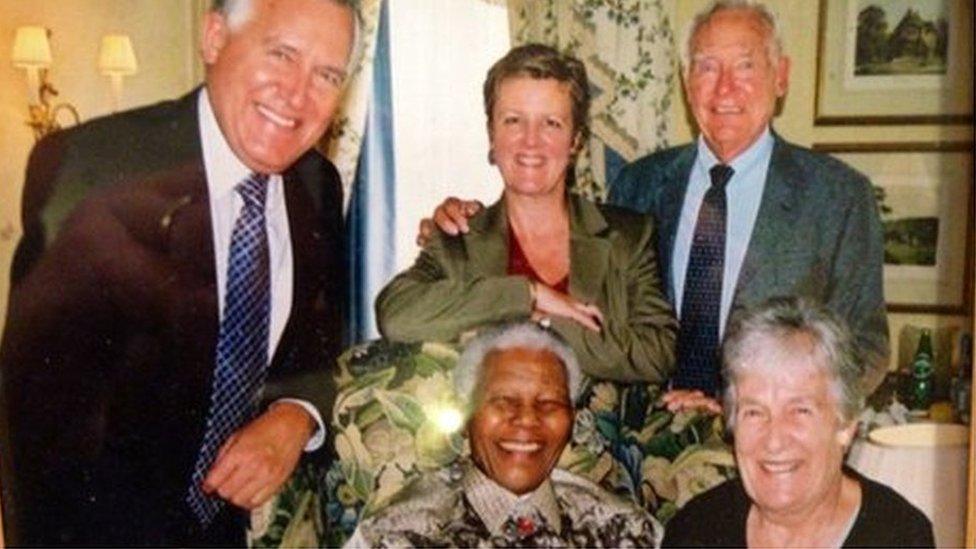
Peter Hain pictured with his wife Elizabeth, his father Walter, Nelson Mandela and his mother Adelaine
Adelaine Hain's activism continued. She helped an imprisoned activist escape over the border and helped smuggle messages to others in jail. In 1964 the couple took into their home the wife and child of John Harris, who had been arrested for planting a bomb at a railway station which killed an elderly woman.
In 1966 Walter and Adelaine Hain were forced to leave South Africa, after the government ordered architectural firms in Pretoria not to employ him.
They settled in Putney, south West London, for four decades, where they and their son Peter campaigned to force the cancellation of the 1970 all-white South African cricket tour to Britain.
In 2009 she and Walter moved to Peter's south Wales constituency of Neath, where her youngest daughter Sally and granddaughter Connie cared for them in their later years.
Nelson Mandela did not forget the part played by the family in the in the anti-apartheid movement, and had even phoned Mrs Hain when she was in Morriston Hospital, Swansea.
"He comes on the phone and says 'It's Nelson Mandela, do you remember me?," she told BBC Wales in 2004.
Lord Hain, a former Labour cabinet minister as well as MP for Neath, said: "My mother always understated her role as a foot soldier in the anti-apartheid struggle but she did extraordinary things, showing enormous courage and self-sacrifice for the principles of anti-racism, human rights and social justice in which she and my Dad believed."
- Published29 January 2014
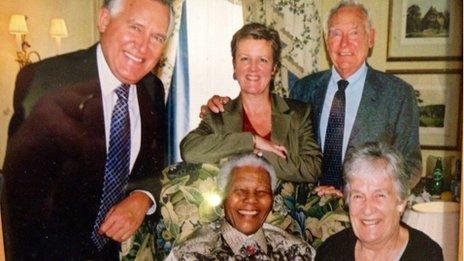
- Published29 January 2014
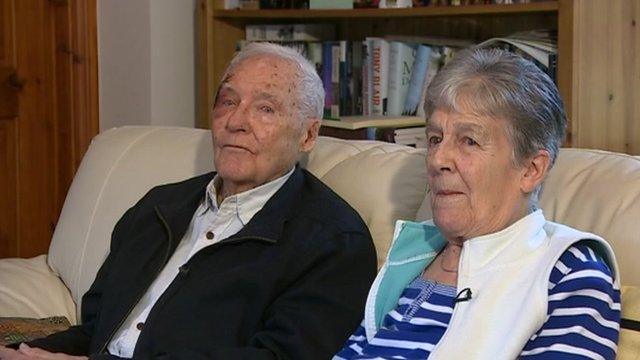
- Published15 October 2016
